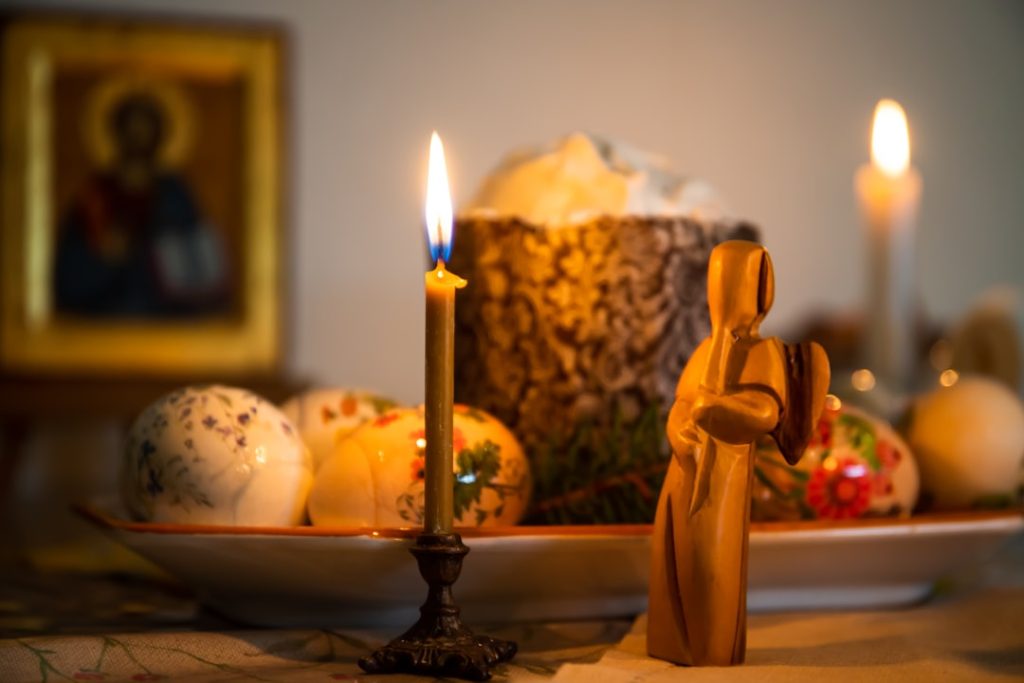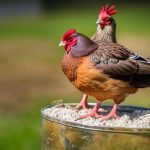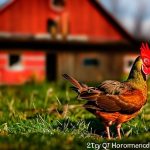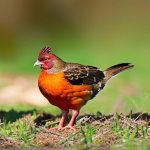Feather loss in chickens can be attributed to various factors, including molting, nutritional deficiencies, environmental stressors, parasitic infestations, and diseases. Molting is a natural annual process where chickens shed old feathers and grow new ones, resulting in temporary feather loss. However, feather loss outside the normal molting period may indicate an underlying problem.
Poor nutrition, particularly a lack of essential nutrients like protein, vitamins, and minerals, can lead to weak and brittle feathers, causing excessive shedding. Environmental stress factors such as overcrowding, excessive noise, or extreme temperatures can also contribute to feather loss in chickens. Parasites, including mites and lice, can infest a chicken’s feathers, causing irritation and subsequent feather loss.
Additionally, certain diseases and health conditions, such as fungal infections, bacterial infections, and hormonal imbalances, may result in feather loss. Feather loss can be distressing for both chickens and their owners. Understanding the various causes of feather loss is essential for addressing the underlying issues and providing appropriate treatment.
By identifying the specific factors contributing to feather loss, chicken owners can take necessary steps to improve their birds’ overall health and well-being.
Table of Contents
- 1 Providing proper nutrition to support feather growth
- 2 Creating a comfortable and warm coop environment
- 3 Using supplemental heat sources for colder climates
- 4 Ensuring proper ventilation to prevent moisture buildup
- 5 Implementing regular health checks and parasite control
- 6 Consulting with a veterinarian for severe feather loss cases
- 7 FAQs
- 7.1 What are the common reasons for chickens losing feathers?
- 7.2 How can I keep my chickens warm if they are losing feathers?
- 7.3 What should I feed my chickens to help them maintain healthy feathers?
- 7.4 How can I prevent my chickens from losing feathers in the first place?
- 7.5 Are there any specific breeds of chickens that are more prone to losing feathers?
Key Takeaways
- Feather loss in chickens can be caused by molting, stress, poor nutrition, parasites, or environmental factors.
- Proper nutrition with a balanced diet rich in protein, vitamins, and minerals is essential for supporting healthy feather growth.
- Creating a comfortable and warm coop environment with adequate bedding and protection from drafts can help prevent feather loss.
- Supplemental heat sources such as heat lamps or heated perches can be used in colder climates to prevent feather loss due to cold stress.
- Proper ventilation in the coop is crucial to prevent moisture buildup, which can lead to feather loss and respiratory issues in chickens.
- Regular health checks and parasite control, including deworming and mite prevention, are important for maintaining healthy feathers in chickens.
- Severe cases of feather loss should be addressed by consulting with a veterinarian to identify and treat any underlying health issues.
Providing proper nutrition to support feather growth
Protein: The Building Blocks of Healthy Feathers
Protein is particularly important for feather growth, as it provides the building blocks for strong and healthy feathers. Chickens should be provided with a feed that contains at least 16-18% protein to support optimal feather development.
Vitamins and Minerals for Healthy Feathers
In addition to protein, vitamins and minerals such as vitamin A, vitamin E, biotin, and zinc are also important for maintaining healthy feathers. These nutrients can be found in commercial poultry feeds as well as in fresh fruits and vegetables.
Supplemental Treats and Fresh Water for Optimal Feather Health
Supplemental treats such as mealworms, sunflower seeds, and leafy greens can also provide additional nutrients to support feather growth. In addition to providing a nutritious diet, it is important to ensure that chickens have access to clean and fresh water at all times. Dehydration can negatively impact feather health, so it is essential to regularly check water sources and clean or replace them as needed. By providing proper nutrition and access to fresh water, chicken owners can support healthy feather growth and help prevent excessive feather loss in their flock.
Creating a comfortable and warm coop environment

Creating a comfortable and warm coop environment is essential for promoting healthy feather growth in chickens. A well-designed coop should provide adequate space for the birds to move around freely and engage in natural behaviors such as roosting and dust bathing. Proper ventilation is also important for maintaining air quality and preventing moisture buildup, which can lead to damp conditions that are conducive to mold growth and respiratory issues.
Additionally, providing adequate bedding such as straw or wood shavings can help insulate the coop and keep the birds warm during colder months. In colder climates, it is important to provide supplemental heat sources to keep the coop at a comfortable temperature. This can include heat lamps, heated perches, or heated pads placed on the floor of the coop.
It is important to position heat sources carefully to prevent fire hazards and ensure that chickens have enough space to move away from the heat if needed. By creating a comfortable and warm coop environment, chicken owners can help their birds stay healthy and maintain strong and resilient feathers.
Using supplemental heat sources for colder climates
In colder climates, providing supplemental heat sources is crucial for keeping chickens warm and comfortable during the winter months. Cold temperatures can cause stress on chickens and lead to decreased egg production, weakened immune systems, and increased susceptibility to illness. To prevent these issues, it is important to provide supplemental heat sources in the coop to maintain a consistent temperature.
Heat lamps are a popular option for providing warmth in the coop, as they can be easily installed and adjusted to provide the right amount of heat. Heated perches are another option for keeping chickens warm during colder weather. These perches are designed to provide warmth directly to the birds’ feet, helping them stay comfortable and preventing frostbite.
It is important to position heat sources carefully to prevent fire hazards and ensure that chickens have enough space to move away from the heat if needed. Additionally, it is essential to regularly check heat sources for any signs of damage or malfunction to prevent accidents or injuries. By using supplemental heat sources in colder climates, chicken owners can help their birds stay warm and healthy throughout the winter months.
Ensuring proper ventilation to prevent moisture buildup
Proper ventilation is essential for maintaining air quality and preventing moisture buildup in the chicken coop. Poor ventilation can lead to damp conditions that are conducive to mold growth, respiratory issues, and ammonia buildup from droppings. To ensure proper ventilation, coops should be designed with adequate windows, vents, and openings that allow for air circulation without creating drafts.
It is important to regularly check vents and openings to ensure that they are not blocked by debris or other obstructions. In addition to natural ventilation, it may be necessary to use supplemental fans or exhaust systems to improve air circulation in the coop. These systems can help remove stale air and moisture from the coop, creating a healthier environment for the birds.
By ensuring proper ventilation in the chicken coop, owners can help prevent moisture buildup and maintain optimal air quality for their flock.
Implementing regular health checks and parasite control

Monitoring for Signs of Illness or Infestation
Regular health checks are crucial for preventing feather loss in chickens. By monitoring their birds regularly, owners can identify any signs of illness or infestation early on and take appropriate measures to address the issue. This includes checking for any changes in behavior, appetite, or appearance that may indicate a health problem.
Detecting Abnormalities through Physical Exams
Regular physical exams can help detect any abnormalities such as skin lesions or feather damage that may be caused by parasites or disease. This proactive approach enables owners to take prompt action to address any underlying issues that may be contributing to feather loss.
Parasite Control for Healthy Feathers
Parasite control is also essential for maintaining healthy feathers in chickens. External parasites such as mites and lice can infest a chicken’s feathers, causing irritation and leading to excessive shedding. Regularly inspecting the birds for signs of parasites and using appropriate treatments such as dust baths or topical medications can help prevent infestations and keep the feathers healthy.
Consulting with a veterinarian for severe feather loss cases
In severe cases of feather loss, it is important to consult with a veterinarian who specializes in poultry health. A veterinarian can conduct a thorough examination of the birds to identify the underlying cause of feather loss and recommend appropriate treatment options. This may include diagnostic tests such as skin scrapings or blood work to rule out any underlying health conditions or infections.
In some cases, severe feather loss may be caused by more serious issues such as hormonal imbalances or autoimmune disorders that require specialized medical treatment. A veterinarian can provide expert guidance on how to manage these conditions and help improve the overall health of the birds. By consulting with a veterinarian for severe cases of feather loss, chicken owners can ensure that their birds receive the best possible care and support for restoring healthy feathers.
In conclusion, feather loss in chickens can be caused by a variety of factors including molting, poor nutrition, environmental stress, parasites, and disease. By understanding these reasons for feather loss and taking proactive measures such as providing proper nutrition, creating a comfortable coop environment, using supplemental heat sources in colder climates, ensuring proper ventilation, implementing regular health checks and parasite control, and consulting with a veterinarian for severe cases of feather loss, chicken owners can help maintain optimal feather health in their flock. Prioritizing the well-being of chickens by addressing feather loss issues will ultimately lead to happier and healthier birds overall.
If you’re concerned about your chickens losing feathers and want to keep them warm, you may want to consider upgrading their coop. Poultry Wizard offers helpful tips on how to keep your chickens comfortable and healthy in their coop, such as insulating the coop and providing adequate bedding. For more information on how to create a cozy and warm environment for your chickens, check out their article on chicken coop Chester SC or chicken coop Portage.
FAQs
What are the common reasons for chickens losing feathers?
Chickens can lose feathers due to molting, stress, parasites, nutritional deficiencies, or environmental factors.
How can I keep my chickens warm if they are losing feathers?
You can keep your chickens warm by providing them with a draft-free coop, using heat lamps or heated pads, and providing extra bedding for insulation.
What should I feed my chickens to help them maintain healthy feathers?
To help your chickens maintain healthy feathers, you should provide them with a balanced diet that includes high-quality poultry feed, fresh fruits and vegetables, and access to grit and calcium supplements.
How can I prevent my chickens from losing feathers in the first place?
To prevent your chickens from losing feathers, you should ensure they have a stress-free environment, regular access to dust baths, and regular health checks for parasites or nutritional deficiencies.
Are there any specific breeds of chickens that are more prone to losing feathers?
Some chicken breeds, such as Silkies and Naked Necks, are more prone to losing feathers due to their genetic traits.
Meet Walter, the feathered-friend fanatic of Florida! Nestled in the sunshine state, Walter struts through life with his feathered companions, clucking his way to happiness. With a coop that’s fancier than a five-star hotel, he’s the Don Juan of the chicken world. When he’s not teaching his hens to do the cha-cha, you’ll find him in a heated debate with his prized rooster, Sir Clucks-a-Lot. Walter’s poultry passion is no yolk; he’s the sunny-side-up guy you never knew you needed in your flock of friends!







